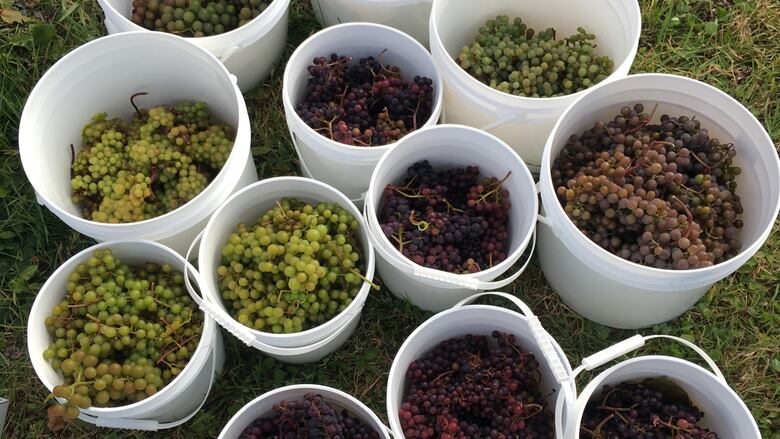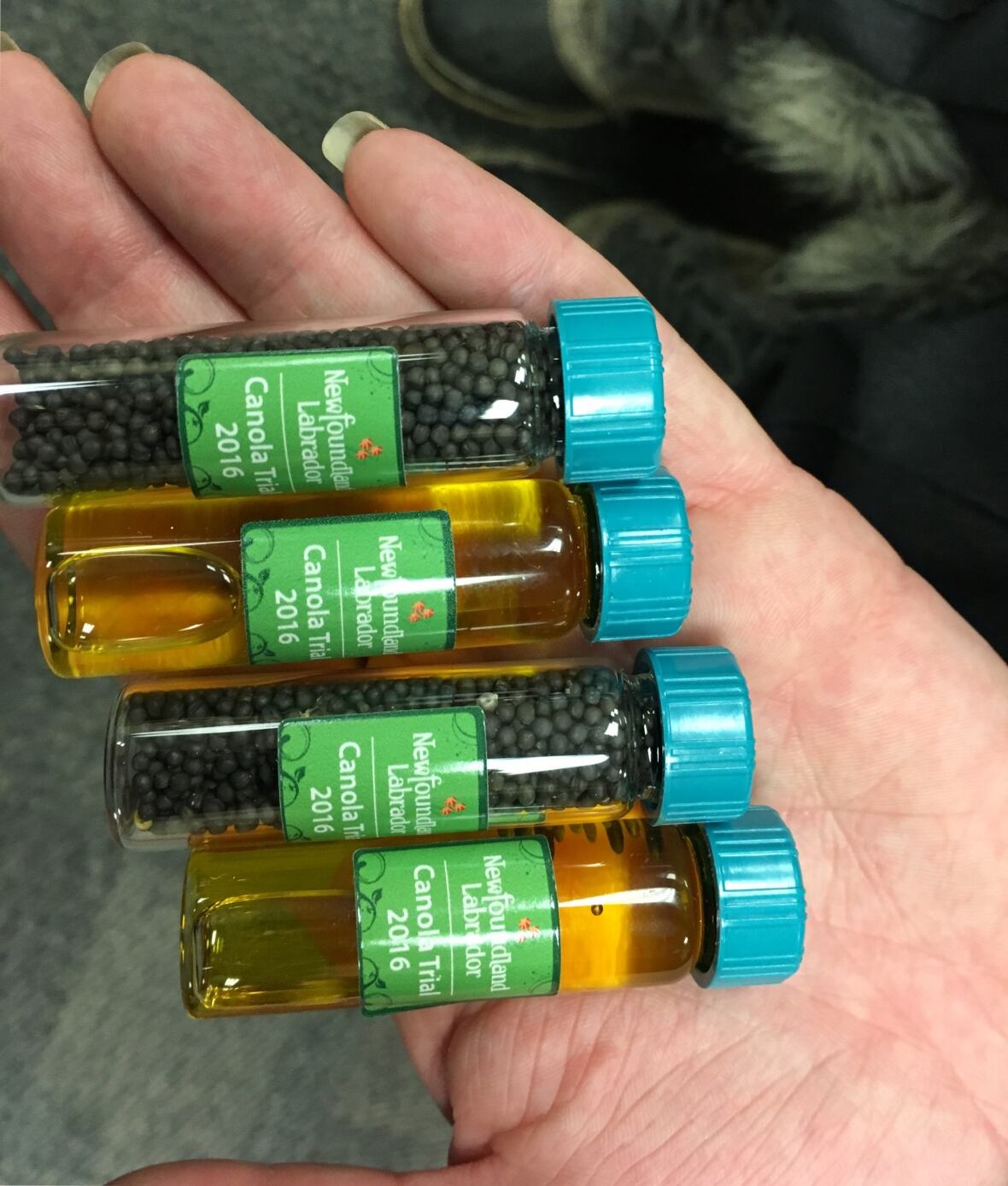White wine and canola oil: N.L.'s budding crop opportunities
Experimental crops yielded promising results for the province

Thanks to the success of some unconventional crops grown last summer, western Newfoundland might soon add canola and grapes to its list of agricultural products.
There was a huge opportunity for grapes [in Nova Scotia], and there was no one commercially growing grapes here.- Karen Kennedy
Working with independent farmers, the provincial Department of Fisheries, Forestry and Agrifoods experimented with the two crops that aren't traditionally grown in the province.
The hope was those first-time crops could sow the seeds for new farming industries.
Yes, we can-ola
While canola farming is big business in the prairies, it's unheard of in Newfoundland and Labrador.
But when Vanessa Kavanagh was brainstorming for a nutritious but cost-effective option for cattle feed, canola seemed like it could work in the cooler climate.

"Yes, we're a lot different from Saskatchewan, but perhaps we might have a little better conditions than Iceland or northern Norway," said Kavanagh, the province's alternative feed co-ordinator.
"So perhaps this was a crop that may work here too."
It turns out she was right. Planting 12 hectares on private farmland on the island's west coast, in Pasadena, Kanvanagh said the yield was ¾ of a metric tonne per acre — which is on par with the rest of Atlantic Canada.
A golden byproduct
The chief aim of the experiment was to provide quality feed for the dairy industry, and Kavanagh considers the results "fantastic."
Seventy per cent of the crop was turned into canola meal for cattle.The remaining 30 per cent can be used for a slick byproduct: oil.

So far, Kavanagh said, she and her team have extruded some oil, but that's still a work in progress.
"We have a cold press, so we have virgin cold-pressed canola oil that restaurants would like to try and sell."
The oil can also be used as a biofuel, she said.
Wine not?
Like canola, the idea to grow grapes in Newfoundland was germinated in another province.
"There was a huge opportunity for grapes [in Nova Scotia]," says Newfoundland and Labrador's fruit-crop development officer Karen Kennedy. "And there was no one commercially growing grapes here."

Buoyed by stories of backyard gardeners growing grapes, Kennedy planted the first experimental vines four years ago in Humber Village, a small community in Humber Valley, as well as in Brooklyn, on the Bonavista Peninsula.
Taking into account the cooler climate, she focused her efforts on "colder, hearty varieties" of grapes, such as l'Acadie blanc and Frontenac gris.
While enjoying a cool chardonnay can be quite relaxing, Kennedy describes starting a vineyard as an "arduous process" of planting, weeding, spraying and thinning vines so they get as much sunlight as possible.
It took two years before they grew their first grapes, Kennedy said, but in 2016 they harvested 42 pounds and made their first batch of white wine before Christmas. They are planning to create a red wine in January.
Plowing the way for new industry
The Newfoundland and Labrador government is planning to continue the experimental canola and grape crops.
A number of farmers in Cormack want to try their hand at canola this spring, and Kennedy said she hopes the idea of vineyards starts to spread.
If so, Newfoundland and Labrador could see a grape-based wine industry bloom.
Corner Brook Morning Show